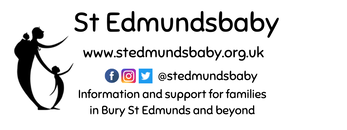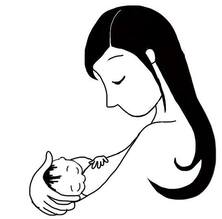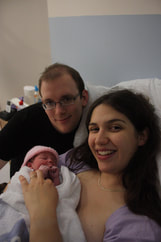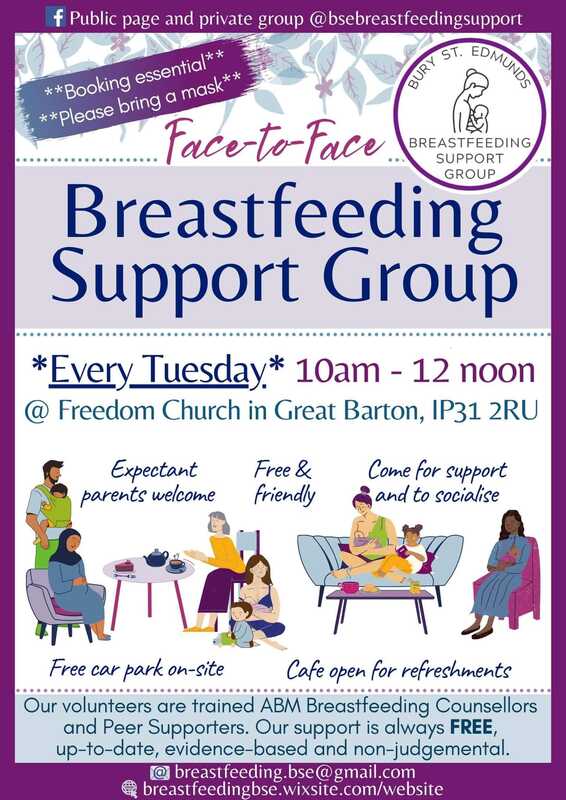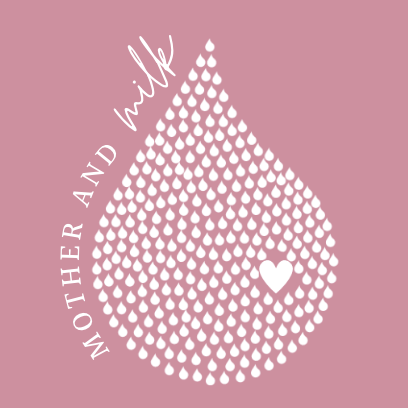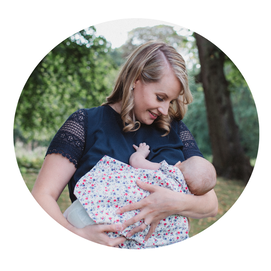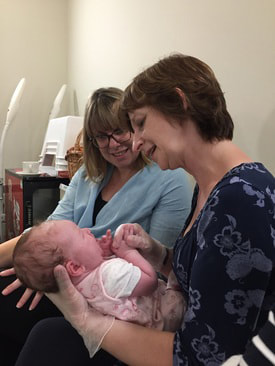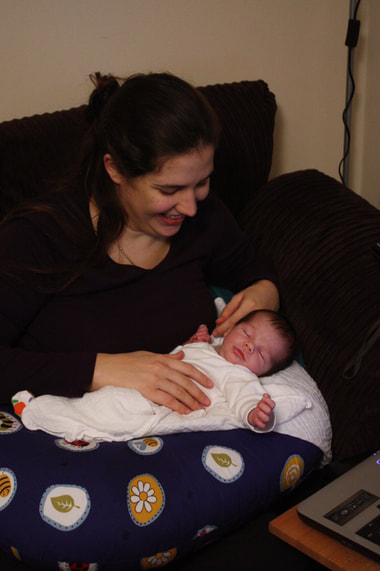Support available - local and national
|
Breastfeeding Support
La Leche League Helpline: 0345 120 2918 (24hrs) https://www.laleche.org.uk/ NCT Breastfeeding Helpline: 0300 330 0700 (8am - midnight) https://www.nct.org.uk/baby-toddler/feeding/early-days/breastfeeding-support-nct Association of Breastfeeding Mothers: 0300 330 5453 (9.30am - 10.30pm) https://abm.me.uk/ National Breastfeeding Helpline: 0300 100 0212 (9.30am - 9.30pm) https://www.nationalbreastfeedinghelpline.org.uk/ The Breastfeeding Network https://www.breastfeedingnetwork.org.uk/ Breastfeeding Suffolk App https://breastfeedingsuffolk.co.uk/ |
Bury St Edmunds Breastfeeding Support Group
|
Face-to-face breastfeeding support group at Freedom Church, Great Barton, IP31 2RU from 10am - 12pm
Please book here if you're thinking of coming (it doesn't matter if you then can't make it): https://form.jotform.com/breastfeedingbse/Freedomchurchform You're welcome to bring children of any age and supportive friends/relations/partners. Please let us know when booking so we can arrange seating accordingly. Pregnant families are very welcome also, it's a lovely way to prepare for a new arrival. Come to our FREE and friendly groups for support and/or to socialise at any stage in your breastfeeding journey! Our volunteers are trained Association of Breastfeeding Mothers (ABM) Breastfeeding Counsellors and Peer Supporters. Our support is always FREE, up-to-date, evidence-based and non-judgemental. The cafe will be open for yummy refreshments! There is lots of free parking on site at Freedom Church Cafe IP31 2RU. |
Please do NOT attend our group if you are; self isolating, have a confirmed case of Covid, have a high temperature, have a new and continuous cough or somebody within your household or close contacts has symptoms or a confirmed case of Covid. Thank you.
Your place at group is always FREE but we ask you to book if you're planning on coming.
If you're nervous about joining please pop us a message and we'll be happy to reassure you.
Website: https://breastfeedingbse.wixsite.com/
Facebook: https://www.facebook.com/BSEbreastfeedingsupport
Email: [email protected]
Your place at group is always FREE but we ask you to book if you're planning on coming.
If you're nervous about joining please pop us a message and we'll be happy to reassure you.
Website: https://breastfeedingbse.wixsite.com/
Facebook: https://www.facebook.com/BSEbreastfeedingsupport
Email: [email protected]
Mother and Milk
|
Website: https://www.motherandmilk.co.uk/
Email: [email protected] Facebook: www.facebook.com/motherandmilkibclc Telephone: 07498 319230 |
Alissa Pemberton Midwife, International Board Certified Lactation Consultant (IBCLC), Certified Infant Massage Instructor & Gentle Sleep Coach
Holistic, family centred support with: - breastfeeding challenges including painful feeding, poor weight gain, over/undersupply, weaning + more - establishing good sleep habits for your newborn - dealing with sleep challenges for babies/children from birth to 5 years of age |
Sarah Oakley Lactation
|
Independent Nurse, Health Visitor, IBCLC and Tongue-Tie Practitioner, Holistic Sleep Coaching.
I offer breastfeeding support, tongue-tie division and infant sleep services in Cambridgeshire, Suffolk and Norfolk. Free drop in sessions held at:
Website: www.sarahoakleylactation.co.uk Facebook: @sarahoakleylactation Telephone: 07729 629 190 |
Pregnancy & Parenting Organisations
|
AIMS (Association for Improvements in the Maternity Services) Provides invaluable independent, evidence-based information for women and their families.
Attachment Parenting UK Best Beginnings Birth International Birthrights The UK’s only organisation dedicated to improving women’s experience of pregnancy and childbirth by promoting respect for human rights. Birth Trauma Association (BTA) Bliss - for babies born sick or premature Breech Babies Club |
Calm Family
Doula UK This is the site to visit if you are thinking of hiring a birth doula, for support before and during labour and birth, or a postnatal doula, who would be able to provide practical and emotional support in the first weeks of motherhood. The site also includes useful information about birth and pregnancy. Gingerbread - Single parents, equal families Homestart - Support and friendship for families NCT - National Childbirth Trust Petals - the baby loss counselling charity Positive Birth Movement UK - global network of free antenatal groups Sands - Stillbirth and neonatal death charity Tommy's - Funding research, saving babies lives |
West Suffolk midwifery/health visiting teams
West Suffolk MVP - Maternity Voices Partnership (formerly MSLC)
West Suffolk Hospital Maternity Unit
West Suffolk Midwives communication hub 01284 713755
West Suffolk Hospital Maternity Unit
West Suffolk Midwives communication hub 01284 713755
|
West Suffolk Hospital
Karen Newbury, Head of Midwifery: 01284 713270 Gill Walsh, Inpatient Maternity Matron: 01284 712799 Karen Bassingthwaighte, Outpatient Maternity Matron: 01284 712995 Antenatal clinic reception: 01284 713254 Maternity day assessment unit: 01284 712723 Labour suite: 01284 713278 Birthing unit: 01284 712758 F11 ward: 01284 713216 Community Midwives West Suffolk community midwives office hours: Monday - Friday 9.00am - 3.00pm Telephone: 01284 713755 Email: [email protected] Please note, we may take up to 2 working days to respond to your enquiry, but should you require urgent advice, please contact the hospital maternity department on 01284 712758 Pregnancy referral form: https://www.wsh.nhs.uk/Services-A-Z/Maternity/Pregnancy-referral-form.aspx |
Health Visitors and Children's Centres
In Suffolk our Health Visiting Service is integrated with our Children's Centre Service, because we believe this provides you with better care and support. For all enquiries, information, advice and guidance please call our Health Business Centre on 0345 607 8866 or e-mail [email protected] Brandon Children's Centre The Brandon Centre, Bury Road, Brandon, IP27 OBQ 01842 816111 Bury Library Children's Centre Bury St Edmunds Library, Sergeants Walk, St Andrews Street North, Bury St Edmunds, Suffolk, IP33 1TZ 01284 732266 Carousel Children's Centre St Olaves Road, Bury St Edmunds, Suffolk, IP32 6RW 01284 748355 Cartwheels Children's Centre Norton Road, Haverhill, CB9 8NF 01440 760500 Hardwick Children's Centre Steward Road, Bury St Edmunds, Suffolk, IP33 2PW 01284 733940 Lark Children's Centre Jubilee Centre, Recreation Way, Mildenhall, Suffolk, IP28 7HG 01638 582820 Bluebells Children's Centre Bury Lane, Stanton, Bury St Edmunds, Suffolk, IP33 2DE 01359 254282 Foley House Children's Centre 52 Wellington Street, Newmarket, Suffolk, CB8 0HY 01638 565533 |
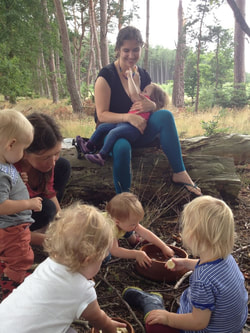
Breastfeeding - Frequently Asked Questions
(The Association of Breastfeeding Mothers)
Is breastfeeding good for my baby?
Breastfeeding not only provides food in the most natural form for babies, but also provides comfort, pain relief and the natural nurturing that babies need for development. Breast milk contains everything that a baby needs for growth in the first six months of life in exactly the right amounts and in the best form for his body to use. Breast milk satisfies a baby's hunger and thirst.
No other foods or drinks are necessary, provided a baby is allowed to feed at the breast whenever he wishes.
Breast milk increases a baby's resistance to many infections and diseases, and reduces his risk of developing allergies, diabetes and childhood cancers. Breast milk is free, fast and convenient. It is always available, and is fresh, clean and served at the right temperature. There’s no sterilising to worry about, no mixing, heating, refrigerating, and no bottles to take out and about. Babies can be breastfed discreetly anywhere.
Is breastfeeding good for me?
Breastfeeding reduces the risk of breast and ovarian cancers and helps your uterus to return to its pre-pregnancy size, so you regain your figure more quickly. Breastfeeding also uses up excess fat stores from pregnancy. Breastfeeding gives you a chance to sit down and relax during a busy day, and so helps you cope with the demands of motherhood. It gives you confidence as you know you are giving your baby the best possible start in life. It can be a rewarding and satisfying experience for you and your baby.
How soon can I breastfeed my baby?
You can usually start breastfeeding immediately after birth. A baby's suckling instinct is strongest in the first hour after birth, so putting your baby to the breast as soon as possible will get you off to a good start.
How do I put my baby to the breast?
Make yourself comfortable. (For night-time feeding or if you have stitches, lying on your side may be the best option for you.) Your baby should be held close to your body, facing your breast with his head, shoulders and body in a straight line, and your hand supporting his neck so he can move his head to latch on. He should be able to reach the breast easily without having to stretch or twist. You can also breastfeed leaning back at about 45 degrees, supported by cushions.
Hold your baby with his nose opposite your nipple, allowing his head to be able to flex. Brush your nipple against his lips or nose to encourage him to open his mouth and reach for your breast. Wait for the 'gape' (his mouth opening like a yawn). Bring him to the breast with his chin touching the breast first, then his bottom lip and tongue near the outer edge of the areola, and bringing his top lip to latch over the nipple as far as possible on to the other side of the areola. Make sure he takes a good mouthful of the areola (the dark area surrounding the nipple) and not just the nipple itself. He should have more areola in his mouth on the side of his bottom lip than his top lip.
Babies breastfeed — they don’t nipple feed. Allowing your baby to suck on just the nipples will make them extremely sore, and can lead to cracking and bleeding. Remember to always bring your baby to your breast rather than trying to move your breast to your baby.
Tummy to Mummy, Nose to Nipple, and Baby to Breast.
How can I avoid sore nipples?
Some nipple tenderness is common during the first few days due to hormonal changes in your body, but this will soon pass. If it is painful when you first put your baby to the breast, gently insert your clean little finger between your baby's mouth and your breast to break the suction, and try again. If the discomfort persists, seek help from a breastfeeding counsellor or midwife to check your baby is correctly positioned at your breast. Breast milk is a natural antiseptic — if your nipples are sore, express a little milk after a feed and allow the milk to dry on the nipple. It will help them heal. When your baby is correctly positioned and feeding well, breastfeeding shouldn’t be at all painful — if it is, some adjustments will be required. Don’t be afraid to ask for help. A plentiful milk supply is also dependent on correct positioning, so this is an important thing to get right.
How long should I feed my baby for?
Always let your baby determine the length of the feed. Your baby knows when he has had enough, and will take himself off the breast. If you take him from the breast before he is ready, he may not have received as much of your milk as he needs, and he may not gain weight and thrive as he should. Taking your baby off the breast too soon may also reduce the amount of milk you produce.
How often should I feed my baby?
Breastfed babies need to feed frequently. Young babies will generally need at least 8 feeds and may have as many as 12 or more feeds in 24 hours. Your baby may also 'cluster' feed, having a few of his breastfeeds close together then the rest spaced out a little more — this is normal. The important thing to remember is that the more often a baby suckles at the breast, the more milk is produced.
At times during the early weeks your baby may appear to be more hungry than usual - he will be "asking" to build up your supply in preparation for a spurt of growing and developing. Occasionally a very placid baby, who regularly sleeps for long stretches, may need to be woken to be fed. Don’t be tempted to make comparisons between how often your baby feeds and a bottle-fed baby's patterns. Breastfed babies have a totally different pattern of feeding.
How can I increase my milk supply?
If you feel that your supply is low, encourage your baby to feed more often. Put your own and your baby's needs first. Babies do have 'growth spurts' and at these times they will need to feed more often to stimulate milk production. Good positioning at the breast is also important for a good milk supply.
Can I have too much milk?
Colostrum (the 'first' milk) begins to change to mature milk during the first week, and this is often referred to as the milk 'coming in'. Your breasts will be swollen with extra fluids and, initially, you may be making more milk than your baby takes. At this time your breasts may become hard, lumpy and painful. Frequent feeding helps to avoid this, and expressing a little milk before putting the baby to the breast can also help. A warm bath, or warm flannel held to the breast will help the milk to flow easily and make expressing easier.
Will breastfeeding spoil my figure?
No, it's pregnancy and birth that affect your figure, along with your lifestyle and eating habits. You may find your breasts change in appearance slightly after giving birth whether or not you breastfeed, but breastfeeding may actually help them to remain firmer than they otherwise would. A well-fitting nursing bra will support your breasts, and keep you comfortable during the day. A bra that is too tight can lead to blocked milk ducts and mastitis.
Do I have to eat a special diet?
No, eating a normal, balanced diet will provide your body with all the nutrients necessary to make plenty of milk for your baby's needs without depleting your own stores of nutrients or energy. Occasionally a baby may take exception to something you have eaten or drunk, but this is unusual. Moderation in all foods is normally all that is required. Drink when you feel thirsty.
How do I know if my baby is getting enough milk?
If your newborn baby is feeding whenever he asks to, is gaining weight steadily, has plenty of pale, wet nappies (provided no other fluids are given), has several poos a day (in the first six weeks) and seems contented, then relax — he's getting enough. He will enjoy the cuddling and the close contact with you, so don’t be afraid of "spoiling" him by breastfeeding frequently.
What about night feeds?
Almost every baby wakes at night needing to be fed. A baby's tummy cannot hold huge amounts of milk and, as breast milk is very easily digested, your baby will ask to breastfeed often. Night feeds help to boost your milk supply and prevent engorged breasts. Night feeds may continue for some time: there is no set age at which a breastfed baby will give up wanting to feed at night. Each baby is an individual with individual needs.
What if I need more help?
The ABM has volunteer breastfeeding counsellors who give free information and support by phone, in person or via email. For regular breastfeeding information, support and our magazine, join the ABM.
Association of Breastfeeding Mothers
Helpline 0300 330 5453
Admin and enquiries: 08444 122948
Email: [email protected]
ABM, PO Box 207, Bridgwater TA6 7YT
(The Association of Breastfeeding Mothers)
Is breastfeeding good for my baby?
Breastfeeding not only provides food in the most natural form for babies, but also provides comfort, pain relief and the natural nurturing that babies need for development. Breast milk contains everything that a baby needs for growth in the first six months of life in exactly the right amounts and in the best form for his body to use. Breast milk satisfies a baby's hunger and thirst.
No other foods or drinks are necessary, provided a baby is allowed to feed at the breast whenever he wishes.
Breast milk increases a baby's resistance to many infections and diseases, and reduces his risk of developing allergies, diabetes and childhood cancers. Breast milk is free, fast and convenient. It is always available, and is fresh, clean and served at the right temperature. There’s no sterilising to worry about, no mixing, heating, refrigerating, and no bottles to take out and about. Babies can be breastfed discreetly anywhere.
Is breastfeeding good for me?
Breastfeeding reduces the risk of breast and ovarian cancers and helps your uterus to return to its pre-pregnancy size, so you regain your figure more quickly. Breastfeeding also uses up excess fat stores from pregnancy. Breastfeeding gives you a chance to sit down and relax during a busy day, and so helps you cope with the demands of motherhood. It gives you confidence as you know you are giving your baby the best possible start in life. It can be a rewarding and satisfying experience for you and your baby.
How soon can I breastfeed my baby?
You can usually start breastfeeding immediately after birth. A baby's suckling instinct is strongest in the first hour after birth, so putting your baby to the breast as soon as possible will get you off to a good start.
How do I put my baby to the breast?
Make yourself comfortable. (For night-time feeding or if you have stitches, lying on your side may be the best option for you.) Your baby should be held close to your body, facing your breast with his head, shoulders and body in a straight line, and your hand supporting his neck so he can move his head to latch on. He should be able to reach the breast easily without having to stretch or twist. You can also breastfeed leaning back at about 45 degrees, supported by cushions.
Hold your baby with his nose opposite your nipple, allowing his head to be able to flex. Brush your nipple against his lips or nose to encourage him to open his mouth and reach for your breast. Wait for the 'gape' (his mouth opening like a yawn). Bring him to the breast with his chin touching the breast first, then his bottom lip and tongue near the outer edge of the areola, and bringing his top lip to latch over the nipple as far as possible on to the other side of the areola. Make sure he takes a good mouthful of the areola (the dark area surrounding the nipple) and not just the nipple itself. He should have more areola in his mouth on the side of his bottom lip than his top lip.
Babies breastfeed — they don’t nipple feed. Allowing your baby to suck on just the nipples will make them extremely sore, and can lead to cracking and bleeding. Remember to always bring your baby to your breast rather than trying to move your breast to your baby.
Tummy to Mummy, Nose to Nipple, and Baby to Breast.
How can I avoid sore nipples?
Some nipple tenderness is common during the first few days due to hormonal changes in your body, but this will soon pass. If it is painful when you first put your baby to the breast, gently insert your clean little finger between your baby's mouth and your breast to break the suction, and try again. If the discomfort persists, seek help from a breastfeeding counsellor or midwife to check your baby is correctly positioned at your breast. Breast milk is a natural antiseptic — if your nipples are sore, express a little milk after a feed and allow the milk to dry on the nipple. It will help them heal. When your baby is correctly positioned and feeding well, breastfeeding shouldn’t be at all painful — if it is, some adjustments will be required. Don’t be afraid to ask for help. A plentiful milk supply is also dependent on correct positioning, so this is an important thing to get right.
How long should I feed my baby for?
Always let your baby determine the length of the feed. Your baby knows when he has had enough, and will take himself off the breast. If you take him from the breast before he is ready, he may not have received as much of your milk as he needs, and he may not gain weight and thrive as he should. Taking your baby off the breast too soon may also reduce the amount of milk you produce.
How often should I feed my baby?
Breastfed babies need to feed frequently. Young babies will generally need at least 8 feeds and may have as many as 12 or more feeds in 24 hours. Your baby may also 'cluster' feed, having a few of his breastfeeds close together then the rest spaced out a little more — this is normal. The important thing to remember is that the more often a baby suckles at the breast, the more milk is produced.
At times during the early weeks your baby may appear to be more hungry than usual - he will be "asking" to build up your supply in preparation for a spurt of growing and developing. Occasionally a very placid baby, who regularly sleeps for long stretches, may need to be woken to be fed. Don’t be tempted to make comparisons between how often your baby feeds and a bottle-fed baby's patterns. Breastfed babies have a totally different pattern of feeding.
How can I increase my milk supply?
If you feel that your supply is low, encourage your baby to feed more often. Put your own and your baby's needs first. Babies do have 'growth spurts' and at these times they will need to feed more often to stimulate milk production. Good positioning at the breast is also important for a good milk supply.
Can I have too much milk?
Colostrum (the 'first' milk) begins to change to mature milk during the first week, and this is often referred to as the milk 'coming in'. Your breasts will be swollen with extra fluids and, initially, you may be making more milk than your baby takes. At this time your breasts may become hard, lumpy and painful. Frequent feeding helps to avoid this, and expressing a little milk before putting the baby to the breast can also help. A warm bath, or warm flannel held to the breast will help the milk to flow easily and make expressing easier.
Will breastfeeding spoil my figure?
No, it's pregnancy and birth that affect your figure, along with your lifestyle and eating habits. You may find your breasts change in appearance slightly after giving birth whether or not you breastfeed, but breastfeeding may actually help them to remain firmer than they otherwise would. A well-fitting nursing bra will support your breasts, and keep you comfortable during the day. A bra that is too tight can lead to blocked milk ducts and mastitis.
Do I have to eat a special diet?
No, eating a normal, balanced diet will provide your body with all the nutrients necessary to make plenty of milk for your baby's needs without depleting your own stores of nutrients or energy. Occasionally a baby may take exception to something you have eaten or drunk, but this is unusual. Moderation in all foods is normally all that is required. Drink when you feel thirsty.
How do I know if my baby is getting enough milk?
If your newborn baby is feeding whenever he asks to, is gaining weight steadily, has plenty of pale, wet nappies (provided no other fluids are given), has several poos a day (in the first six weeks) and seems contented, then relax — he's getting enough. He will enjoy the cuddling and the close contact with you, so don’t be afraid of "spoiling" him by breastfeeding frequently.
What about night feeds?
Almost every baby wakes at night needing to be fed. A baby's tummy cannot hold huge amounts of milk and, as breast milk is very easily digested, your baby will ask to breastfeed often. Night feeds help to boost your milk supply and prevent engorged breasts. Night feeds may continue for some time: there is no set age at which a breastfed baby will give up wanting to feed at night. Each baby is an individual with individual needs.
What if I need more help?
The ABM has volunteer breastfeeding counsellors who give free information and support by phone, in person or via email. For regular breastfeeding information, support and our magazine, join the ABM.
Association of Breastfeeding Mothers
Helpline 0300 330 5453
Admin and enquiries: 08444 122948
Email: [email protected]
ABM, PO Box 207, Bridgwater TA6 7YT
